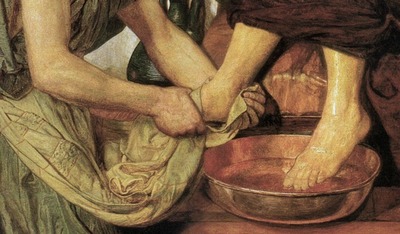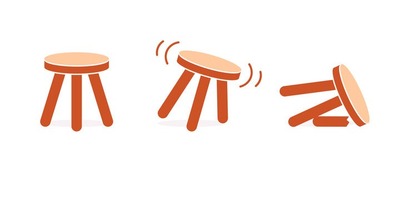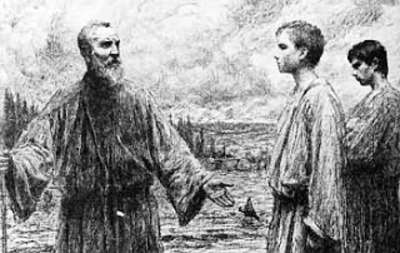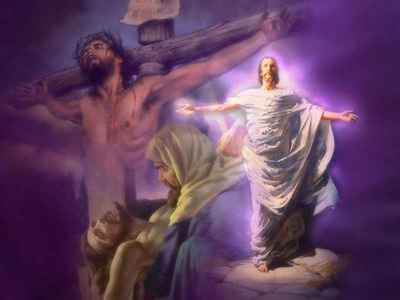October 22, 2023
|by N W
|
0 Comments
|
Courage, Deacon Mark, Discipleship, Faith, Grace, Holy Spirit, Trust
Twenty-ninth Sunday in Ordinary Time
October 22, 2023 — Year A
Readings: Is 45:1, 4-6 / Ps 96 / 1 Thes 1:1-5b / Mt 22:15-21
by Rev. Mr. Mark De La Hunt, Permanent Deacon
The Church has done her usual wonderful job of choosing a collection of readings that help us enter into the gospel with the right frame of mind. Isaiah tells us God is Lord and “there is no other” (Is 45:5). In Psalm 96, King David, fresh from bringing the Ark of the Covenant back to Jerusalem, writes, “Declare His glory among the nations.…The Lord reigns” (Ps 96:3,10). In Paul’s letter to the Thessalonians, he wrote, “He has chosen you; for our gospel came to you in power and in the Holy Spirit…” (1 Thes 1:4). So the right frame of mind is that Jesus, who is God, is the King of the Universe and we are His people, made so by the Holy Spirit.
King David points out God’s kingship in today’s Psalm, declaring that He reigns. Where is God’s throne? It is in heaven, yes, but Jesus also reigns in our very bodies. Paul, in 1 Corinthians 6:19, says God made our bodies into a temple of the Holy Spirit. Thus, Paul can say to the Thessalonians that they received the Gospel in the Holy Spirit. That Jesus made our bodies into temples is a key to today’s gospel.
Let’s use our imaginations and enter into this gospel by composing the scene. Return to this scene whenever your mind starts to wander. Jesus is in the great Temple of Jerusalem, the greatest religious structure in the kingdom of Rome. Its area would cover 35 football fields and it is several stories tall. The stone walls are thick, with some stones weighing several hundred tons. “Its appearance is radiant with polished marble and gold adornments.” (Mitch/Sri, 302) Jews, Gentiles, and priests are bustling about. The air is filled with many voices and other sounds, and the smell of smoke and incense. You are there, taking a seat to listen to the famous rabbi, Jesus, speak.
If you recall, the next thing we need to do before we unpack the gospel, is to ask Jesus for the grace we desire to receive from this encounter with Him. And today, Jesus tells us, through the lips of his enemies, what that grace is. The disciples of the Pharisees asked Jesus, “Tell us, then, what You think” (Mt 22:7). In other words, we want the grace of interior knowledge of Jesus’ mind and heart; knowledge not written in the book but given to us by grace through the Holy Spirit.
Now, we play out the scene. Jesus is standing at the top of some steps. We are sitting at the front of the crowd at the base of the steps, eager to hear what He has to say. We have heard of His time in the temple, verbally jousting with the priests and elders. He has really started to stir things up. Knowing that, we are not surprised when some disciples of the Pharisees arrive, pushing their way through the crowd, brushing by you, and walking up a few of the stairs, but staying lower than Jesus.
What does surprise us is that they are accompanied by Herodians, traitors who have consorted with the Romans! The Pharisees’ disciples start lavishing praise on Jesus, but you can tell by the look on their faces, it is not sincere. “Teacher, we know that you are true, and teach the way of God truthfully, and care for no man; for you do not regard the position of men” (Mt 22:16). You have to admit, though, that what they said really is how you see Jesus. But then comes their trap, which in your opinion, is so predictable of that group. “Is it lawful to pay taxes to Caesar, or not?” Oh no. You want to yell out to Jesus, “Do not answer that question. It is a trap.”
You know that if He says do not pay the taxes, the Herodians will have him arrested and tortured for instigating a tax revolt (Mitch/Sri, 285.) If He says pay the tax, He will look like a Roman sympathizer, discrediting Himself in the eyes of the Jews. (Ibid.) But then you recall how He has handled Himself before today, and you get a knowing grin on your face. This is going to be good.
Jesus asks the Pharisees’ disciples for a coin that pays the tax, and they give him a Roman denarius. Hypocrites, you think to yourself. They carry coins for taxes like everyone else! Those coins have an image of Caesar with the blasphemous words, “Son of the divine Augustus” on one side and “high priest” on the other. (Mitch/Sri, 286) Sure enough, Jesus says, “Why are you testing me, you hypocrites” (Mt 22: 18)? And then He sets their heads spinning. After they tell Him the image on the coin is Caesar’s, He tells them, “Then repay to Caesar what belongs to Caesar and to God what belongs to God” (Mt 22:20-21).
His adversaries leave in stunned silence, brushing by you on their way out. While triumphantly smirking at them, you suddenly remember the grace you asked for and get up the courage to raise your hand and to ask Jesus a question. “Lord, I get that paying our taxes does not compromise our duty to God, but tell us what it means to repay to God what belongs to God?” (Mitch/Sri, 286)
Jesus begins to explain, and you and the crowd grow silent again, glad that Jesus sent the hypocrites packing. He looks at you with fondness and His gaze fills you with warmth and joy. He says, “The Roman denarius bears Caesar’s image, so it belongs to him and should be returned to him.” But, looking at you, He asks, “What is it that belongs to God? Hmm?” You kind of freeze up and your mind goes blank. You can feel the crowd staring at you. Jesus does not want you to feel embarrassed, because He sincerely loves you. He loves that you pushed your way to the front row. He loves you for not falling for the lies and games of the hypocrites.
To help you, Jesus asks you another question. “Who did God make in His image?” You smile, look around smugly at the crowd and answer, “Me! And all of us” (Gn 1: 26). Jesus smiles with a chuckle, and says, “You have answered well.” Someone behind you gives you a congratulatory pat on the shoulder. But then you notice Jesus staring at you looking for more. And it hits you and you shout, “Since our body bears God’s image, we must return it to Him. He is our King, and we owe Him all that we are and have! (Mitch/Sri, 286) Jesus opens His arms and makes an emphatic, “Yes!” And then you realize that He has given you the grace we asked for, “Tell us what You think.”
To quote my boss, how do we put blue jeans on this? In other words, how do we simplify putting into practice returning to God our very self? First, we must examine our life and ask ourselves, “Where am I holding back giving myself to God because of my lack of faith?” If you are not sure, then look for where you have fears or concerns or worries or anxieties or insecurities or, if you have none of these, then pride.
These are often revealed by your self-talk or inner voice saying, “I am too young. I am too old. I am too poor. I am too busy. I am too tired. I am not smart enough. I am not holy enough. I am too sinful. I am good right here.” Notice all these statements have something in common. They all use the words “I am.” A lack of faith can cause us to try to bear our burdens or to perform good works without God who is the great “I Am” (Ex 3:14).
If we flip these words around, we will see how silly our lack of faith is:
Too young for I Am? We have teenage saints. David was around fifteen years old when God anointed him to be a king.
Too old for I Am? Simeon, ready to die of old age, announced Jesus as the Messiah.
Too poor for I Am? Mary and Joseph were poor. Jesus was born in a barn!
Too busy for I Am? He keeps the universe in motion. He is the Lord of time and will help you find more.
Too tired for I Am? He does not sleep. He spoke to me about this gospel before the sun rose.
Not smart enough for I Am? He makes the simple wise. St. Peter, a fisherman, in his first attempt at preaching brought three thousand to the Lord.
Not holy enough for I Am? He freed Mary Magdalene from seven demons and the sinful behaviors caused by that, and she went on to proclaim His resurrection to the twelve apostles.
Too sinful for I Am? St. Augustine wrote one of the world’s first autobiographies, candidly sharing his sins of fornication and careerism in his book, Confessions. Today, he is quoted throughout the Catechism and studied by Catholics and Protestants alike.
Our King protects us, guides us, and strengthens us. He loves when you return to God what is God’s by rendering your children to I Am in Baptism, your sins to I Am in Confession, your body, heart, and soul to I Am in Holy Communion, bowing your head to I Am in Confirmation for impartation of the Holy Spirit, rendering your tired and sick body to I Am in Holy Anointing of the Sick, rendering your best friend to I Am for His blessing of your Marriage, and rendering your sons and husbands to I Am in Holy Orders!
What more does I Am need to do for us to trust Him enough to render to Him what is His…which is you and me? Give Him yourself, your girlfriend, your boyfriend, your husband, your wife, your children, your classes, your job, your retirement, your virtues and your vices. This is how we render to God what is God’s. We give Him our good and our not so good.
Oh Great I Am, you are King of the Universe, and we render to you our very selves and ask that you reign in our bodies, your temple. Amen!
Citations
The Holy Bible, Revised Standard Version, Second Catholic Edition. Ascension Publishing 2018.
Curtis Mitch & Edward Sri. Catholic Commentary on Sacred Scripture, The Gospel of Matthew. Baker Academic 2010.
KEEP READING
 540-586-8988
540-586-8988 










